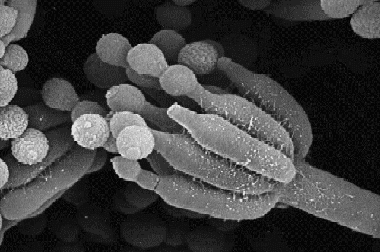Phytotherapy >>>> Biological antiseptics
Biological antiseptics.

Biological antiseptics , as one of the types of antiseptics, acts on microbial cells and their toxins, exerting a bacteriostatic or bactericidal effect with the help of other microorganisms (fungi, bacteria, viruses and their toxoids) or enzymes produced by other microorganisms.
Today, natural antibiotics, bacteriophages, and proteolytic enzymes can act as biological antiseptics.
Natural antibiotics are a waste product of fungi or bacteria. The mechanism of their action is based on the fact that fungi or bacteria, releasing specific substances (antibiotics) under the conditions of nature, with the help of these substances compete for living space with other microorganisms, suppressing the growth of colonies of the latter.


The action of bacteriophages as bio-antiseptics rests on their vital necessity to use suitable bacterial species for their own reproduction, which, accordingly, leads to a decrease or complete destruction of colonies of certain bacterial strains.
Proteolytic enzymes are successful bio-antiseptics, but their action is based on changing the habitat of pathogens, which indirectly leads to a reduction in bacterial colonies when they are unable to multiply in an environment that is not suitable for their life.
In the medical literature, many authors also refer to bio-antiseptics as immunostimulants, sera, vaccines and toxoids, the action of which is directed against foreign genes of microorganisms by using immune agents in the process of resisting pathogens.
Biological antiseptics are administered:
- by irrigation or powdering the wound,
- ointment applications,
- by packing the wound,
- through drains and catheters,
- using an injection needle (with puncture of cavities or endolumbar injection) - only special antiseptics,
- intravenously - only specific antiseptics are suitable,
- by chipping subcutaneously or intramuscularly,
- endotracheally and endobronchially by means of bronchoscopes or catheters,
- endolymphatic pathway.

Read

Read



























